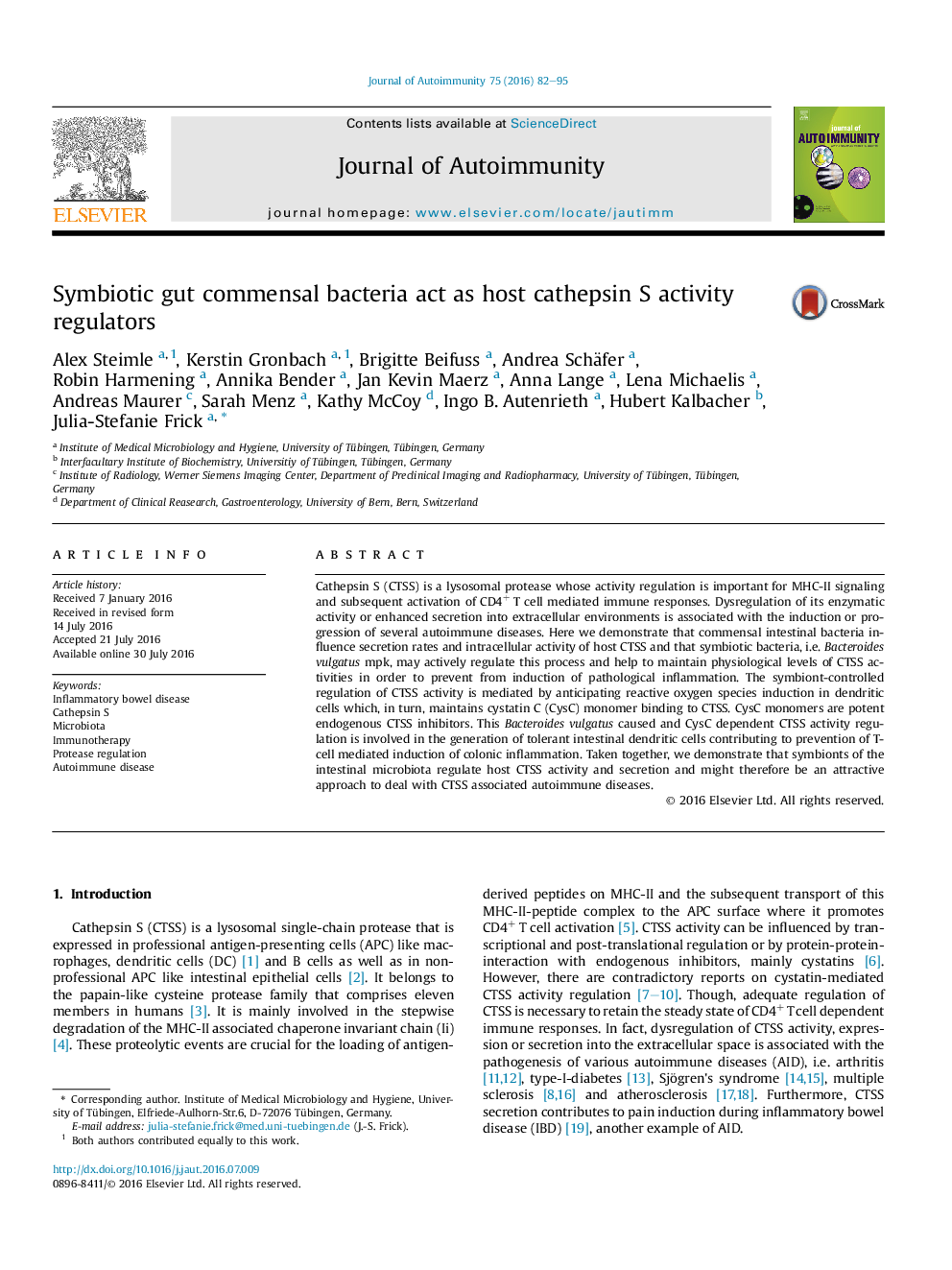| Article ID | Journal | Published Year | Pages | File Type |
|---|---|---|---|---|
| 5667951 | Journal of Autoimmunity | 2016 | 14 Pages |
â¢Symbiotic gut commensals protect from colitis induction.â¢Prevention of colitis is caused by regulation of cathepsin S activity.â¢Inhibition of cathepsin S activity is mediated by cystatin C.â¢Symbiont-induced low intracellular ROS levels are responsible for inhibition.
Cathepsin S (CTSS) is a lysosomal protease whose activity regulation is important for MHC-II signaling and subsequent activation of CD4+ T cell mediated immune responses. Dysregulation of its enzymatic activity or enhanced secretion into extracellular environments is associated with the induction or progression of several autoimmune diseases. Here we demonstrate that commensal intestinal bacteria influence secretion rates and intracellular activity of host CTSS and that symbiotic bacteria, i.e. Bacteroides vulgatus mpk, may actively regulate this process and help to maintain physiological levels of CTSS activities in order to prevent from induction of pathological inflammation. The symbiont-controlled regulation of CTSS activity is mediated by anticipating reactive oxygen species induction in dendritic cells which, in turn, maintains cystatin C (CysC) monomer binding to CTSS. CysC monomers are potent endogenous CTSS inhibitors. This Bacteroides vulgatus caused and CysC dependent CTSS activity regulation is involved in the generation of tolerant intestinal dendritic cells contributing to prevention of T-cell mediated induction of colonic inflammation. Taken together, we demonstrate that symbionts of the intestinal microbiota regulate host CTSS activity and secretion and might therefore be an attractive approach to deal with CTSS associated autoimmune diseases.
